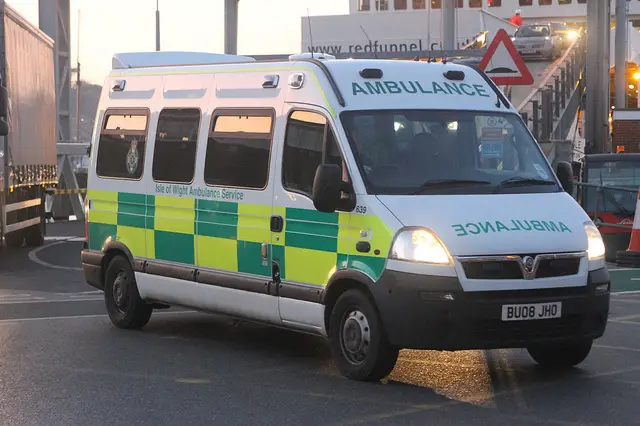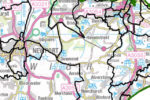Isle of Wight residents are no more likely to miss out on an organ transplant than their mainland counterparts, a specialist transplant nurse has said.
Earlier this year, rumours on social media said a woman from the Island had missed out on two kidney transplants, due to receiving the call in the middle of the night and being unable to get the ferry across quickly enough.
Family agree care plan
However, Mick Wilcox, specialist nurse in organ donation, said this scenario was unlikely to ever happen.
When a patient is put on the transplant list, a care plan is created with the hospital team covering how they will get to the hospital in the case of a transplant.
Mr Wilcox said:
“If someone needed an organ to be transplanted in Portsmouth, and the normal travel time during the day is two hours, that would be taken into their plan.
“If they were offered a kidney overnight — which is unlikely, but possible — then four hours would be a reasonable time to expect and there would be no reason that someone could not get across in that period of time.
“But that plan is made with that family and they know about that, and they make plans to deal with that.”
Priority boarding
An understanding exists between cross-Solent transport operators and the Isle of Wight NHS Trust in such situations — if a patient were to receive the call saying an organ was available at Portsmouth, a call would be made to the ferry company which would help give the individual priority boarding.
Mr Wilcox said:
“Transplants are scheduled operations, so although it feels like they are an emergency, they are planned and all of this goes into the planning and part of their treatment.
“I can see though if you live on the Island and you weren’t in the position where you need a transplant, you might well worry about that. You have to be in that situation to know what it’s all about.”
Higher than national average of registered donors
According to data released by Esri UK gathered from an NHS table of organ donor registers, on the Isle of Wight, 60,950 people are registered as organ donors — 43 per cent of the population. Nationally, 36 per cent of the population are signed up to the list.
As of May 2018, there are ten people on the transplant waiting list on the Isle of Wight.
Transplants are coordinated across the UK, with the nearest kidney transplant centre in Portsmouth. Only retrievals take place at St Mary’s hospital — approximately four to five donors a year, with three organs taken from each donor. The most common organs are kidney or liver, although there have been heart and lung donors on the Island.
Restrictions reduce possible donors
Donations must either be after brain stem death, or after circulatory death, usually from traumatic brain injuries. Patients must have been ventilated and incubated prior to death, which reduces the number of possible donors.
Dr Muriel Prager, clinical lead for organ donation, said:
“Only a few number of people die in a way that they are able to become organ donors.”
Many families say no
However, many families choose not to donate their loved ones organs after death.
Mr Wilcox said:
“There’s a multitude of reasons that families say no. Most of it is to do with shock, an un-accepting of death. It is to do with protecting bodies and keeping them whole, even though sadly there is nothing to protect at that point.
“We have religious reasons, families not understanding or liking the thought of it — there can be a whole host of things which seem irrational in the light of day but they are not irrational to that family going through that situation.”
3,000 lifesaving transplants missed last year
NHS Blood and Transplant figures show around 3,000 lifesaving transplants were missed in the last year, as families would not donate relatives’ organs.
As part of organ donation week — which runs until Sunday — the NHS is urging people to sign up to the register and tell their families their wishes.
Mr Wilcox said,
“People don’t want to talk about death because death is not something we as British people are comfortable talking about.”
Become an organ donor
The week comes as the government has announced it aim to introduce a new “opt-out” law in England, which will assume that over-18s are in favour of donating their organs when they die, unless they specifically register to “opt out.”
You can register to become an organ donor online: https://www.nhsbt.nhs.uk/donate/
This article is from the BBC’s LDRS (Local Democracy Reporter Service) scheme, which OnTheWight is taking part in. Some additions by OnTheWight. Ed





